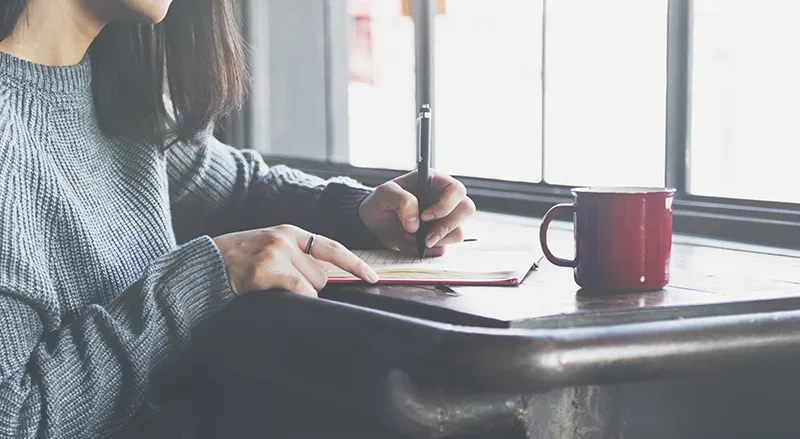
How does screen time affect sleep?
Screen time in bed and in the hours leading up to your nighttime routine can have a negative effect on your ability to fall asleep and the quality of sleep you get. Here are a few reasons why having your phone in bed with you or using your laptop in the hours before you go to sleep could be harming you.
-
Changes your circadian rhythm
Our bodies are designed and accustomed to a 24-hour cycle of day and night. According to the Sleep Foundation, the natural sunlight in the morning wakes us up by producing cortisol, which makes us feel alert and attentive. As the day goes on, cortisol naturally decreases and when it starts to get dark outside, our bodies release melatonin instead, which induces sleepiness.
The blue light that is emitted by phones, tablets, laptops, gaming devices and TVs counteracts the release of melatonin and disrupts our body’s normal cycle. Studies have shown that blue light also reduces our time in deep sleep.
2. Distraction
Our minds require a sense of peace and restfulness before they’re able to fall asleep in normal circumstances. Electronic devices inhibit our minds from accessing that calm mindset. The addictive nature of apps and social media makes it hard to tear ourselves away when the only motivation is something less enticing- sleep.
3. Mental distress
While there are many pros to the virtual world, several studies have shown that social media usage increases a person’s risk of depression, low self-worth, loneliness and anxiety. Using a phone before bed and engaging in social media can make it harder to fall asleep when you’re dealing with hard feelings.
Distress that stems from social media consumption sparks a cycle of device usage, too. For example, as someone is attempting to wind down by looking at social media, she may begin to compare herself and feel insecure. To ignore or minimize the insecurity, she may continue to scroll, distracting herself from those feelings. This delays falling asleep for hours sometimes, often making people feel worse about themselves.
What happens when you get poor sleep?
When your body suffers from a lack of sleep, there are severe consequences for your physical and mental health, especially with repeated nights of poor sleep. Below are a few results of chronic low-quality sleep.
- Weakened immune system and decreased ability to fight off disease
- Poor balance and coordination, lead to an increased risk of accidental injury
- Increased blood pressure and inflammation, which could lead to heart disease
- Increased likelihood of weight gain due to imbalanced internal hunger signals
- Higher risk of type 2 diabetes
- More likely to experience moodiness, have emotional responses and react impulsively
- Trouble storing long and short-term memories
- Decreased rationalizing and problem-solving abilities
Over time, poor sleep can have a ripple effect and lead to lifelong issues like heart disease, depression and anxiety. One of the best ways to prevent health issues and heal from current ones is to ensure you’re getting the rest you need on a daily basis.
Is it bad to sleep with the TV on?
It’s clear that there are negative repercussions of using phones, tablets and other devices before bed. But is it bad to sleep with the TV on? According to Cleveland Clinic, there are two types of device usage: active and passive. Depending on the activity level, devices before bed might not be so bad.
Active includes things like texting and social media that require interaction on the device. Passive use includes listening to podcasts or music or watching a calming TV show. Studies have indicated that more passive usage of technology before bed doesn’t have nearly the negative effect that active use does.
Falling asleep with the TV on isn’t the best way to fall asleep, but it’s much preferable to other forms of screen time.
How to improve sleep hygiene
Struggling with sleep deprivation is as bad as it sounds, but the good news is that there are practical ways to manage poor sleep. Below are tips for how to improve sleep hygiene that you can implement today so you can feel better tomorrow.
- Get on a regular sleep schedule
- Get the help you need for underlying conditions
- Analyze your nighttime routine
- Replace technology with other calming activities
- Switch your devices to night mode
- Use your bedroom only for sleep or calm activities
- Try progressive muscle relaxation
- Take a warm bath
- Use a sound machine
- Avoid caffeine and alcohol intake in the hours leading up to bed
- Avoid naps or only take short taps
- Don’t try to fall asleep for more than 20 minutes
- Get out of bed and do something calming if you don’t feel tired after trying to fall asleep
- Keep the routine up
Conditions like depression, anxiety, narcolepsy, sleep apnea, restless leg syndrome and chronic pain can all impact sleep. If you’re facing a mental or mental health disorder simultaneously one of the best ways how to improve sleep hygiene is to get coordinated care to heal the root of sleep troubles.
If you feel technology use is seriously disrupting your sleep or other aspects of your life, such as mood and well-being, consider talking to a therapist about how you can make a personalized plan to improve your sleep quality. The Light Program has trained counselors ready to help you, schedule an appointment today.






